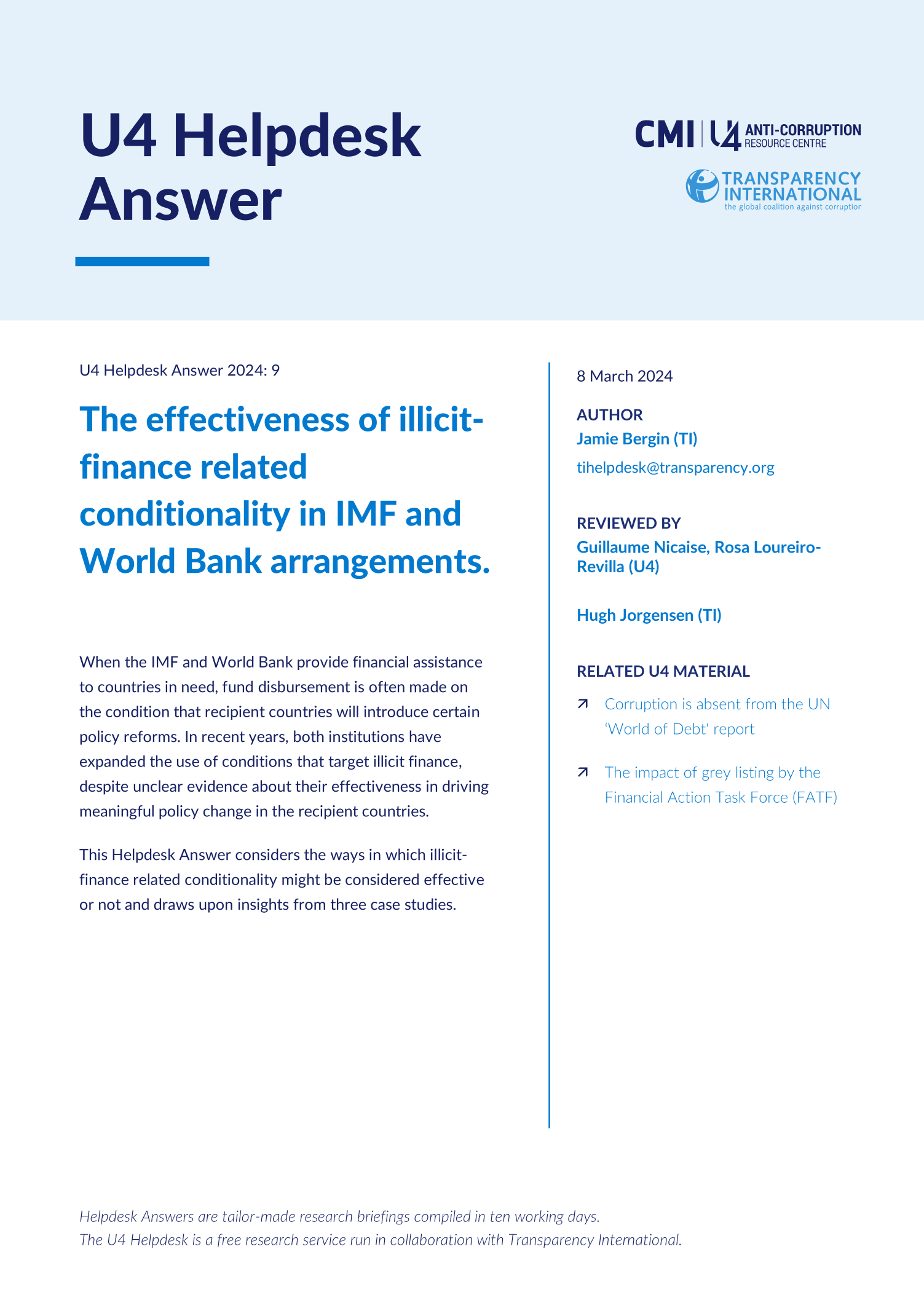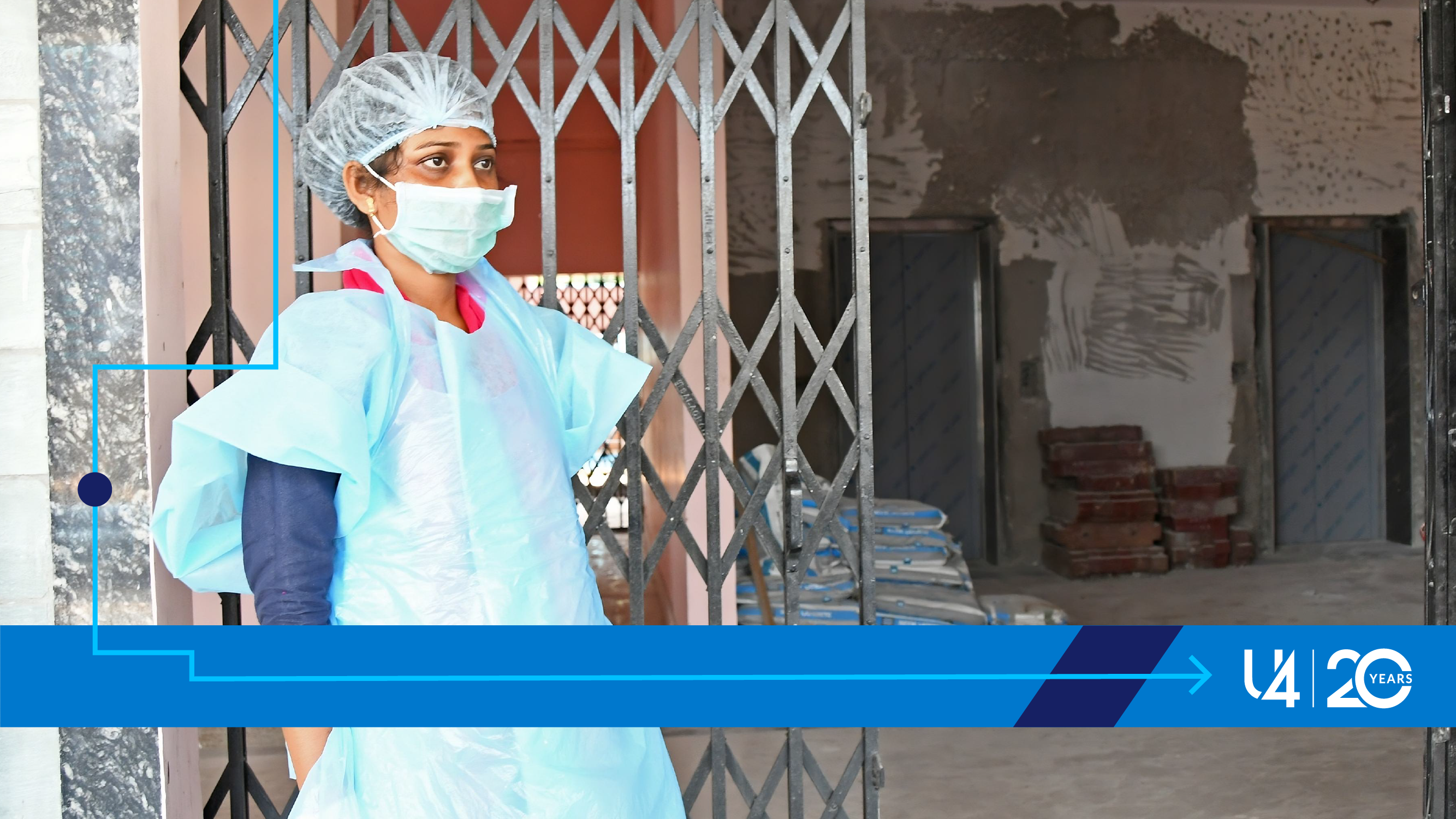Main points
- The IMF and World Bank have increased their use of illicit-finance related conditions in loan-based arrangements with recipient countries.
- Potential data inconsistencies and gaps aside, their available data suggest that countries succeed in meeting many of these conditions.
- Nevertheless, critics within the literature argue these conditions prioritise technical compliance, especially with standards set by the Financial Action Task Force (FATF), over effective implementation.
- Identified factors hindering effectiveness can include a lack of political will or capacity challenges in the recipient countries, and the possible offsetting effects of other conditions.
- The cases of Pakistan, Panama and pandemic-related beneficial ownership conditions provide some evidence of effective illicit-finance related conditions, albeit with limitations.
- Available evidence indicates the international finance institutions, especially the IMF, are attentive to these challenges, giving scope for more effective application of illicit-finance related conditionality in the future.


